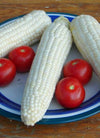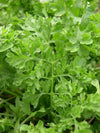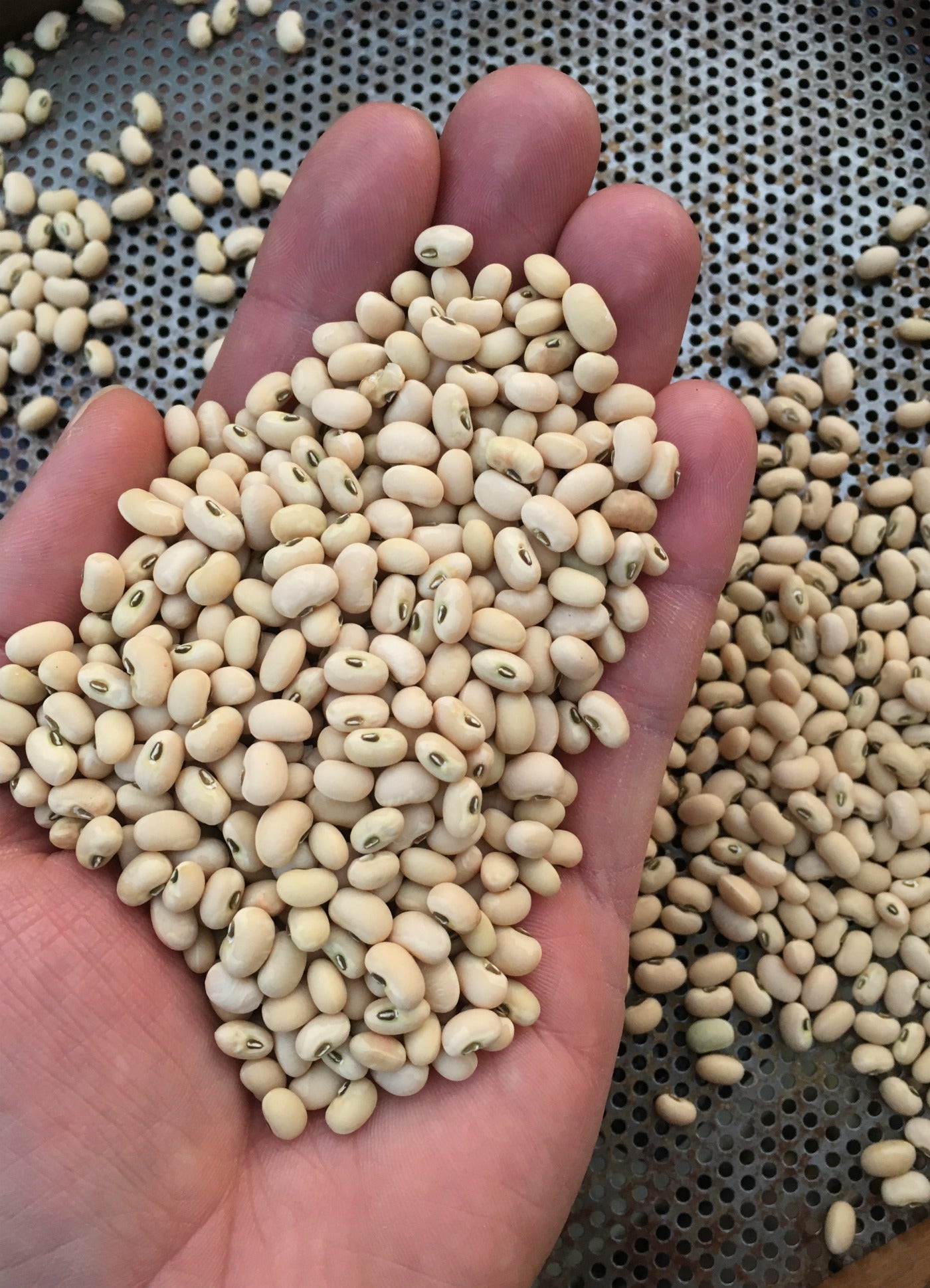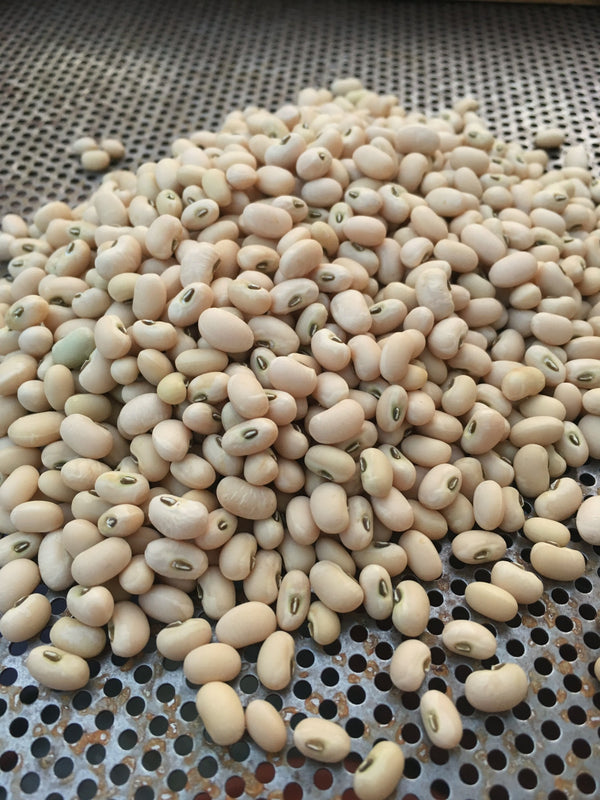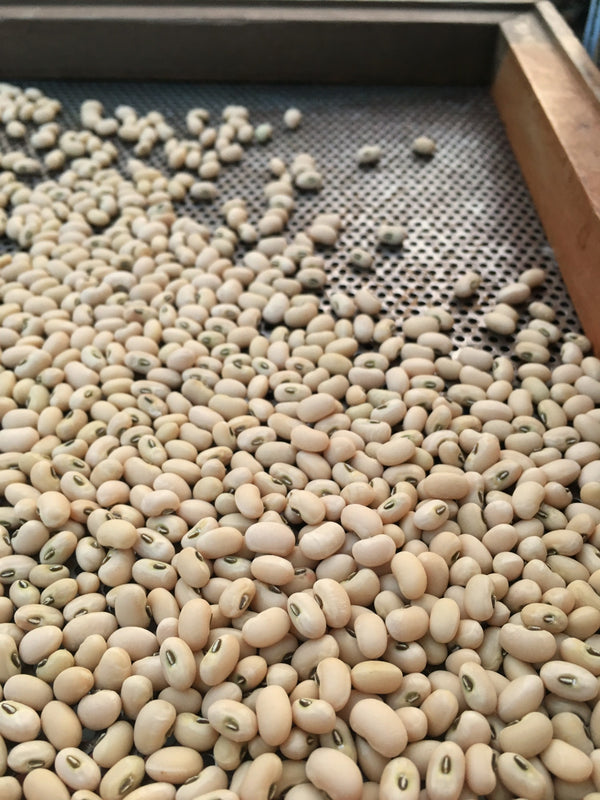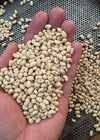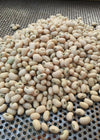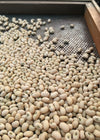Cowpea, 'Fast Lady Northern/Southern Pea'
(Vigna unguiculata) Because cowpeas are often associated with southern warmer climes, they tend to be unknown to most northern growers as field crops. Fast Lady is a very small-seeded strain selected by Oregon breeder Carol Deppe for success in cool season, northern growing. They have a beautiful growing form with very long pods held up off the ground on upright plants (semi-bush habit). Botanically fascinating to us was the presence of extra-floral nectaries. Nectar is usually produced in flowers to attract pollinators, but being almost entirely self-pollinated, the nectar here (up to 95% sugar) is produced further down the stems by special glands for the purpose (it is hypothesized) of attracting predatory insects like ladybugs, ants, and parasitic wasps to aid in the plants' defense. That’s right, cowpeas hire bodyguards and pay in sugar! In addition to their cool biology, they are a nutrient-dense food rich in minerals (100% daily recommended copper and iron/100g dry peas), protein, b-vitamins, and fiber. A fun new addition to fuel our obsession with beans and pulses. Worth noting too, that while it is particularly adapted to northern climates...like most cowpeas, it also thrives in hotter ones. Creamy texture and does not need a presoak. Fresh or dried, they are delicious!
90-100 days dry. UO *OSSI*
Packet: 100 seeds
Product Code: COW-FL-pkt
Availability:In stock
| Translation missing: en.products.general.options | Translation missing: en.products.general.qty | Translation missing: en.products.general.qty |
|---|---|---|
|
$4.50 |
||
|
Out of stock |
$10.00 |
Growing Info
SOWING:
Direct sow in early Spring, after the last frost when soil temps are 60+F.
Note: Adapted for northern climates but thrive equally well in cool and hot climates.
PLANTING DEPTH:
1"
SPACING:
3-5" between plants with 12-24" between rows*
*Pole beans require 5+' between rows.
EMERGENCE:
5-10 days @ soil temp 60-70F
LIGHT:
Full sun to part shade
FERTILITY:
Light to Moderate. Beans can produce their own usable nitrogen from atmospheric nitrogen through a symbiotic relationship with bacteria that colonize specialized nodules in their roots. Too much soil fertility can cause excessive vegetative growth at the expense of pod set and maturity.
ADDITIONAL NOTES:
It can be quite beneficial to mix bean seeds with commercially available bacterial "inoculants" to encourage the beneficial symbiotic relationship in the growing plant's root nodules, especially if growing on ground that hasn't been planted with beans before. This can increase yields and improve plant health.
Avoid picking/weeding beans when the plants are wet. This will help prevent the spread of disease.
Provide a trellis for pole beans.
White-seeded varieties are more susceptible to rot when seeded in cool, wet, early season conditions.
Sow Snap Beans every few weeks for continued harvests.
Harvest dry beans when the pods are brown and dry.
